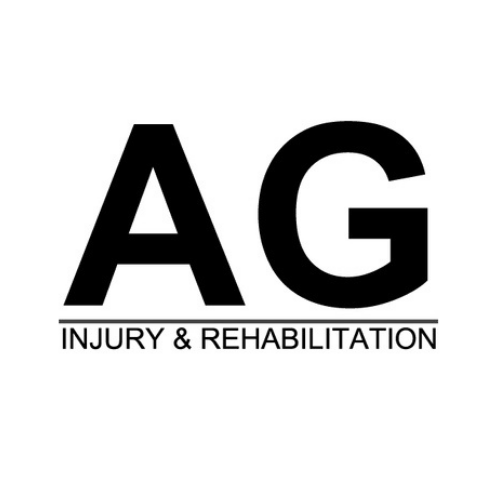Timing isn't everything – but when it comes to creatine supplementation, it's a question that sparks endless debate among fitness enthusiasts. While some swear by their pre-workout creatine ritual, others insist post-workout is the golden hour for maximum gains. The truth might surprise you.
In the world of sports nutrition, creatine stands out as one of the most researched and effective supplements available. Yet, despite decades of scientific study, the optimal timing for taking this powerful performance enhancer remains a topic of fascinating discussion among athletes, trainers, and researchers alike.
Overview of Creatine and Its Benefits
Creatine is a natural substance found in muscle cells. Your body makes it, but you can also get it through supplements. Creatine monohydrate supplements stands out as the most studied and effective form of this supplement.
Taking creatine helps build muscle mass, boost strength, and improve athletic performance. It works especially well for high-intensity exercise performance and weightlifting. The supplement increases your muscles' ability to produce energy quickly, leading to better workout results.
You'll find creatine in powder, pill, or liquid form, making it easy to add to your daily routine.
Importance of Timing in Creatine Supplementation
When you take creatine matters for getting the best results. Your body takes 1-2 hours to reach peak absorption after taking a typical 5g dose. Exercise increases blood flow to your muscles, which can help your body take in and keep more creatine.
Setting up a regular schedule for taking creatine is key. Whether you choose to take it before or after workouts, sticking to a consistent time each day helps keep your muscle creatine levels high. This steady intake pattern supports better muscle growth and strength gains over time.
Pre-Workout Creatine Consumption
Taking creatine before exercise gives you extra fuel for your workouts. Studies show that pre-workout creatine use can make you stronger and more powerful during training sessions. The supplement works best when taken about 30 minutes before you start exercising.
For the best results, mix your creatine with a carbohydrate drink or meal. This combination helps your body absorb and use the supplement more effectively. While some people worry about stomach discomfort, taking creatine with food can help prevent this issue.
Remember that timing isn't everything - regular intake matters more than the exact hour you take it.
Post-Workout Creatine Consumption
Taking creatine after your workout can give your muscles the support they need for recovery. Research shows that post-workout creatine, combined with protein and carbs, helps fill up your muscle creatine stores more effectively.
For the best results, mix 3-5 grams of creatine with your post-workout shake or meal. Studies comparing pre and post-workout timing show mixed results, but many athletes prefer taking it after exercise. The increased blood flow to your muscles during this time might help your body process the supplement better.
While both pre and post-workout timing work well, the key is picking one time and sticking to it.
Daily Maintenance Dosing of Creatine
The standard maintenance dose of creatine is 3-5 grams per day. This amount keeps your muscle creatine stores full and ready to support your workouts. You don't need to time your maintenance dose perfectly - it works just as well whether you take it morning, noon, or night.
Taking creatine daily, including on rest days, maintains the higher levels in your muscles. Many people mix their daily dose with water or juice, though combining it with carbs can help your body process it better. The key is making creatine part of your daily routine, just like taking a vitamin.
Creatine Loading Phase
The creatine loading phase speeds up how quickly your muscles fill up with creatine. During this phase, you'll take 20-25 grams of creatine daily, split into 4-5 doses, for 5-7 days. This approach helps your muscles store more creatine faster than taking regular doses.
While loading isn't required, it can help you see results sooner. You might notice some water weight gain during this time as your muscles hold onto more water. To avoid stomach issues, spread your doses throughout the day and drink plenty of water. After the loading week, switch to the regular 3-5 gram daily dose to keep your creatine levels high.
Creatine Timing During Rest Days
Taking creatine on your non-training days plays a key role in keeping your muscle creatine levels high. While you might think you only need supplements on workout days, skipping doses can slow down your progress.
Stick to the standard 3-5 gram dose on rest days, just like you would on training days. You can take it any time - with breakfast, lunch, or dinner. What matters most is making it a daily habit.
Regular intake on both training and rest days helps your muscles maintain the extra creatine they've stored. This steady supply supports better recovery between workouts and keeps you ready for your next training session.
Factors Influencing Creatine Absorption and Utilization
What you eat and drink affects how well your body processes creatine. Taking creatine with carbohydrates raises insulin levels, which helps your muscles take in more of the supplement. About 20-30 grams of carbs with your creatine dose can make a big difference.
Drinking enough water is essential for making creatine work better in your body. Since creatine pulls water into your muscles, staying hydrated helps prevent stomach discomfort and supports proper muscle function.
Watch your caffeine intake when taking creatine - high amounts might make the supplement less effective. If you drink coffee or pre-workout drinks, try spacing them out from your creatine dose by a few hours.
Exercise also plays a role - working out increases blood flow to muscles, making it easier for your body to absorb and use creatine. Time your workouts and creatine intake accordingly for the best results.
Combining Creatine with Other Nutrients
Taking creatine with carbohydrates makes it work better in your body. When you mix creatine with 20-30 grams of carbs, your insulin levels rise, helping your muscles absorb more of the supplement. Simple sugars like glucose or dextrose work particularly well for this purpose.
Adding protein to your creatine and carb mix can give you extra benefits. A post-workout shake with protein, carbs, and creatine supports muscle recovery and growth. Many athletes mix their creatine into protein shakes or sports drinks for better results.
Remember to space out your creatine intake from high-caffeine drinks. Too much caffeine at the same time might make your creatine less effective.
Individual Variations in Creatine Response
Not everyone responds to creatine supplements the same way. Some people see quick gains in muscle mass and strength, while others might take longer to notice changes. Your genes play a big role in how well your body processes and uses creatine safety and efficacy.
Age can change how your body handles creatine - younger athletes often see faster results than older adults. Men typically show stronger responses to creatine than women, partly due to higher muscle mass and different hormone levels. Your current fitness level also affects results - beginners might notice bigger initial improvements compared to trained athletes.
The key is watching how your body reacts and adjusting your intake accordingly. Some people do well with standard doses, while others need more or less to see results.
Consistency in Creatine Supplementation
Taking creatine every day keeps your muscle levels steady and supports better results. Studies show that improving creatine uptake, reducing the benefits of supplementation.
Pick one time each day to take your creatine and stick to it. Many people find success by linking their creatine dose to a daily activity, like breakfast or post-workout meals. Setting a phone reminder or keeping your supplement visible helps build the habit.
Simple steps make daily intake easier: measure doses ahead of time, keep creatine at work and home, or pack it when traveling. Remember that regular, ongoing use matters more than perfect timing.
Creatine Timing for Different Fitness Goals
Your fitness goals shape when you should take creatine. For building muscle mass, taking creatine after workouts with protein and carbs helps support growth and recovery. Strength athletes often prefer pre-workout timing to power through heavy lifting sessions.
For endurance training, splitting your creatine dose before and after long workouts can help maintain energy levels. Those focused on what is creatine and fitness benefits might benefit from taking creatine with breakfast to support daily muscle function.
Remember to adjust your timing based on workout schedules and energy needs. Morning exercisers might take creatine right after waking, while evening gym-goers could benefit from pre-dinner doses.
Potential Side Effects and Considerations
While creatine is generally safe, some users experience mild side effects. The most common issues include bloating and water retention in the first few days of use. These effects typically fade as your body adjusts to the supplement.
Drinking enough water helps prevent problems like stomach discomfort and dehydration. Most side effects happen during the loading phase when taking higher doses. Starting with a lower dose and building up slowly can reduce these issues.
Talk to your doctor before starting creatine, especially if you have kidney problems or take medications. This simple step helps make sure creatine is safe for your specific health situation.
Scientific Studies on Creatine Timing
Research on creatine timing shows mixed results. Studies comparing pre and post-workout supplementation have found benefits in both approaches. Some research points to optimal creatine timing being better for muscle growth and strength gains, while other studies show similar results regardless of timing.
A key finding from multiple studies is that taking creatine with carbohydrates increases its effectiveness. Scientists have also found that muscle blood flow during exercise might help creatine reach muscle tissues more effectively.
While research continues, most studies agree that regular intake matters more than exact timing. The current evidence suggests that picking any consistent time and sticking to it produces reliable results.
Expert Recommendations and Consensus on Optimal Timing
Top fitness experts agree that when you take creatine explained benefits matters less than taking it regularly. Most nutrition specialists recommend picking one daily time and sticking to it, whether that's with your post-workout shake or morning breakfast.
Many experts point to post-workout as an ideal time, pairing creatine with protein and carbs for better absorption. However, they stress that any consistent timing works well for long-term results. For building muscle mass quickly, most professionals support starting with a loading phase of 20-25 grams daily for 5-7 days before moving to maintenance doses.
The bottom line from experts: choose a time that fits your schedule and stick to it daily.
The Bottom Line on Creatine Timing
The science is clear: consistency trumps perfect timing when it comes to creatine supplementation. While you can optimize your intake by pairing it with carbohydrates or timing it around your workouts, the most crucial factor is maintaining regular daily consumption to keep your muscle creatine stores elevated.
Remember, the best creatine timing schedule is one you can stick to long-term. Whether you choose morning, pre-workout, or post-workout supplementation, the key lies in making it a daily habit that fits seamlessly into your lifestyle and supports your fitness goals.


